- Home
- Christie Golden
Valerian and the City of a Thousand Planets
Valerian and the City of a Thousand Planets Read online
Contents
Cover
Title Page
Copyright
Dedication
Prologue
Chapter One
Chapter Two
Chapter Three
Chapter Four
Chapter Five
Chapter Six
Chapter Seven
Chapter Eight
Chapter Nine
Chapter Ten
Chapter Eleven
Chapter Twelve
Chapter Thirteen
Chapter Fourteen
Chapter Fifteen
Chapter Sixteen
Chapter Seventeen
Chapter Eighteen
Chapter Nineteen
Chapter Twenty
Chapter Twenty-One
Chapter Twenty-Two
Chapter Twenty-Three
Chapter Twenty-Four
Chapter Twenty-Five
Chapter Twenty-Six
Acknowledgments
About the Author
THE OFFICIAL MOVIE NOVELIZATION
THE OFFICIAL MOVIE NOVELIZATION
CHRISTIE GOLDEN
TITAN BOOKS
Valerian and the City of a Thousand Planets: The Official Movie Novelization
Print edition ISBN: 9781785653841
E-book edition ISBN: 9781785653858
Published by Titan Books
A division of Titan Publishing Group Ltd
144 Southwark Street, London SE1 0UP
First edition: July 2017
1 3 5 7 9 10 8 6 4 2
This book is a work of fiction. Any references to historical events, real people, or real places are used fictitiously. Other names, characters, places, and events are products of the author’s imagination, and any resemblance to actual events or places or persons, living or dead, is entirely coincidental. The publisher does not have any control over and does not assume any responsibility for author or third-party websites or their content.
© 2017 Valerian SAS / TF1 Films Production.
All rights reserved.
No part of this publication may be reproduced, stored in a retrieval system, or transmitted, in any form or by any means without the prior written permission of the publisher, nor be otherwise circulated in any form of binding or cover other than that in which it is published and without a similar condition being imposed on the subsequent purchaser.
A CIP catalogue record for this title is available from the British Library.
Did you enjoy this book? We love to hear from our readers. Please email us at [email protected] or write to us at Reader Feedback at the above address.
To receive advance information, news, competitions, and exclusive offers online, please sign up for the Titan newsletter on our website:
www.titanbooks.com
THIS BOOK IS DEDICATED TO ALL THOSE WHO SEE WITH FRESH EYES AND MANIFEST AWE AND WONDER; THE MUSIC MAKERS, AND THE DREAMERS OF DREAMS.
PROLOGUE
The stars were not eternal, but they were ancient nearly beyond reckoning.
Much had their judgeless gazes witnessed in the system ruled by Sol, especially the activity clustered around the third planet from that star.
By that world’s calendar, in the year 1975, something momentous occurred above it.
From separate places on this planet, known to its inhabitants as “Earth,” a pair of nations had launched what would later be deemed “primitive” space vessels. For the first time in Earth’s history, two ships would be joined together, and the inhabitants could move freely between them.
The momentous “handshake in space,” both a literal one and a figurative one, occurred between astronaut Brigadier General Thomas Stafford of the Apollo, and Alexey Leonov of the Soyuz.
There were smiles and joy and a sense of connection, and the two men became and stayed steadfast friends through the decades that unfurled.
What happened in 1998, at Alpha Space Station in orbit around the blue-green world, was not merely two nations meeting. When the European Hermes spaceplane, proposed in the same year as that first historic handshake, arrived to dock at Alpha, it represented a coalition of nations. Space was no longer the province of a few tiny humans, but was rapidly evolving to belong to humanity.
The space station grew as time went by. In the year 2019, China’s massive Tiangong-3 spaceship was warmly welcomed when it came to take its place at Alpha. The captain of the Alpha Space Station, one thirty-year-old James Crowford, enthusiastically greeted his Chinese counterpart Wuang Hu, who himself could not seem to stop smiling. Later historians would mark this moment as the end of international tension, and the beginning of what was the first Great Age of human cooperation.
What many on Earth had said could not happen, did happen. Humanity continued to work for peace and cooperation on Earth, while keeping their eyes and hearts attuned to the siren song of space. They continued to shake hands against the vast panoply of the starfield.
The station was fully established, and the distant stars looked on as Earth’s united glory and passion fueled Alpha’s boom. Eight short years later, the station had grown enormously. Its population had swelled to eight thousand. More nations had ventured into the stars, and wanted to be part of this symbol of unity. By 2029, every country on this third planet from the sun had at least one scientist on board to represent them.
In 2031, an artificial gravity system was installed. The station’s denizens could now walk its corridors as easily as they walked on their home planet. Captain Crowford was now a distinguished man of forty-one years. He had the honor to welcome captains from India, the United Arab Emirates, Korea, Africa, Australia, Brazil, and Japan— who, instead of the iconic “handshake in space,” offered and accepted a traditional bow.
Still the stars, distant and silent, observed. The station expanded, its numbers swelled not just with military or official representatives, but families. And the stars watched as history—not just for humanity, but for the rest of the galaxy—was made in the year 2150; the international space station Alpha was now two miles long and home to over a hundred thousand people. But until this moment, all the construction and designs on the station, all the ships that had come to dock with it, and all those aboard them had all had a certain comfortable familiarity.
The vessel that was now approaching did not.
It looked more like a creature of nightmares than a spaceship—black, chitinous, covered with dozens of sharp, cruel-looking spines. It was lit from within—a dull crimson hue visible only from a few windows positioned on the ship’s sides and two on its bow, if such a strange vessel could be even said to have so pedestrian a thing as a “bow.”
Captain Joshua Norton, known for his somewhat rakish appearance with a neatly trimmed beard and piercing eyes, would later write in his memoirs:
The ship looked like something out of a Jules Verne novel—more living entity than ship. The portholes positioned on its bow were located toward the top of the sloping vessel. The overall impression was of a huge, dangerous creature bearing down upon the hapless Alpha, its two red eyes glowing in anticipation. At any moment, I expected an enormous mouth to open and swallow us all whole. The English word “alien” had never felt more apt.
Norton awaited the aliens in the station’s ceremonial hall. “I tried not to be nervous,” he recalled, some six decades later.
Our communications with the Kortân-Dahuks, whose species had originated in the Pleiades star cluster five thousand light years from our neighborhood, the Sol system, had been consistently civil. The shock of that first contact with them—our first confirmation that we were not the sole sentient rac
e in the galaxy—has of course been articulated by historians and journalists, and captured by artists and poets. It seems old hat by this time, to be physically interacting with an alien. But you must remember, it was so shockingly, so bravely new to those of us who stood in that hall, sweating and no doubt silently uttering prayers.
As I said, correspondence had been civil. They told us they explored the galaxy not looking for conquest, but in search of art and beauty, which was the heart of their species’ culture. We hoped for the best. But we didn’t know.
The last airlock opened.
Three aliens stepped from their ship onto Alpha station.
They were slightly taller than their human hosts, and were roughly humanoid—“Such a telling, Earth-centric word,” lamented Norton, “and we still don’t have anything better”—but there the similarities ended. Norton and his fellow delegates recognized arms and legs, heads with eyes and mouths, but these were appendages affixed to reptilian bodies, and eyes and ears on faces without noses.
Their primary skin color was orange, with blue, yellow, and red blending in those large, noseless faces. Protruding blue-gray lips were set in hard lines. They wore armor on their torsos, lower arms, and legs, and their feet ended in what looked to human eyes like cloven hooves.
We all knew it was a pivotal moment. History in the making. But what kind of history? It seemed as though everything in the world—in ours, at least—was at stake, in the time it took for our hearts to beat… rapidly.
According to accounts, in the pivotal moment, Norton gulped. He offered a smile, and held out a hand that trembled, ever so slightly.
“Welcome aboard,” he said.
One of the Kortân-Dahuks translated for its leader. There was a pause; the alien features were unreadable to humans, who had never before seen them in the flesh.
The leader stepped forward, taller than Norton. He seized the captain’s hand—
—and pumped it up and down, vigorously.
The station—and the whole, watching world— breathed a sigh of relief.
Things moved briskly after that first contact. Species that were then unthinkably strange but who would later become old friends, household names, reached out to interact with humans and make their homes on Alpha.
Mercurys, beings that had transformed over time from primarily organic into mineral beings. Analytical, bordering on emotionless, they were almost more alien than the Kortân-Dahuks. Their more accessible “ambassadors,” the politically astute Doghan Daguis, were invaluable in smoothing out communications between humans and these beings also called the Mirrors.
The Palm Murets followed, gaseous beings encased in soft metallic exosuits and wearing elaborate, intimidating masks that belied their inherently peaceful nature. So, too, did the stars behold the arrival of the Arysum-Kormn, a nomadic race of explorers and travelers who prided themselves on familiarity with every species in the galaxy.
The KCO2s, beings who fed on the negative emotions of others, were received with mixed emotions. While they needed to be near beings who suffered fear, pain, or despair, their feeding on such things, as Norton would famously say, “sure cleared the air for the rest of us.”
Martapuraïs arrived, introduced to the humans by their allies, the Kortân-Dahuks. They were aquatic beings encased in bulky full body suits that the captain who first met them, Ezekiel Trevor, likened to “old-fashioned deep-sea diving suits,” which permitted them to live outside of their watery environment. They were large, benevolent, and ichthyoid with long, tentacular arms. Their round-eyed heads were set in the center of their chests.
Upon meeting them for the first time, balding but charismatic Captain Trevor smiled diplomatically and held out his hand. Blinking solemnly through the bubble of its helmet, the Martapuraï extended its tentacle fingers. Trevor kept the smile glued to his face as his fingers closed around the cool, gooey appendages.
“Welcome aboard,” he managed gallantly.
Humanity, which had once scoffed at the very idea of extraterrestrial life, swiftly began playing host to not just a few, but dozens, and eventually thousands, of different species.
Over time, the thing that made Alpha so special—the welcome it extended to so many sentient beings—became a danger to the very planet that had symbolically opened its doors wide. But there was a way to stay hospitable and to protect the vulnerable Earth. And this, too, the stars saw.
It was time for Earth to say farewell and bon voyage to Alpha Space Station.
The speech the president of the World State Federation made was without precedent, and recordings of the historic moment would be seen in Earth classrooms for as long as there would be an Earth.
“The intergalactic space station has reached critical mass in orbit. It now poses a serious threat to Mother Earth,” announced the tall, elegant statesman. He was in his early seventies, his once-gold hair now nearly silver. His piercing blue eyes gazed into the camera as he spoke. “In its great wisdom, the Central Committee has decided to use all resources necessary to release the space station from the Earth’s gravity.”
Shots of the president’s recognizable, still-chiseled face were interspersed with the images of hundreds of ships that looked like fireflies with their wide rear engines and four grasping arms, attaching themselves to the space station. They activated simultaneously, and, slowly but steadily, the gargantuan space station shifted away from Earth, pushed to a distance where it would be able to escape the mother world’s gravitational grasp. Then, the stars watched as the smaller ships disconnected themselves, permitting Alpha to drift to its future home.
“Its new course is set for the Magellan Current,” the president continued. “Like the great explorer Ferdinand Magellan, the Alpha station will journey into the unknown, a symbol of our values and knowledge. It will carry a message of peace and unity to the farthest reaches of the universe! Our thoughts and prayers go with you… Godspeed, and good luck.”
As the stars, and so many others, watched, the station was sucked into the current, and whisked away from Earth until Alpha Station, too, was to those on Earth no more than another tiny speck in the star-filled universe.
CHAPTER ONE
2710 Planet Mül. Constellation QN 34
The living light above her waved its glowing filaments gently; in this it was, like all things in the world, in tune with the stars, seasons, sun, and sea. She responded to the gradually increasing illumination by opening her impossibly blue eyes, blinking peacefully, slowly awake, welcoming the new day with the same tranquility with which she had welcomed slumber the evening before.
Her soft, still-drowsy gaze took in the warm pink and coral hues of her bedchamber. Light spilled down the curving staircase, and the shiny surfaces of the enormous shell’s walls and ceiling picked up the gleam and suffused the room with rosy brightness.
Her skin caught the light, too; a white that was so much more than a stark, single color. It was decorated with images that changed shape as her moods did: art of the spirit.
Pale and celestial-seeming as moonlight, her smooth, soft skin held every color of the rainbow blended into a pearlescent, ever-shifting, subtle glow.
She was Lïho-Minaa, and she was a princess.
A soft squeak beside her drew her gaze from the familiar shape of the chamber to her favorite little friend, who always snuggled beside her while she slept. Lïho-Minaa smiled as the creature snuffled at her neck happily with its long snout, offering its furry, impossibly soft belly for scratches. It was small enough to perch in her hand, but never feared being smothered by its mistress when she slept—the hard, bumpy scales on its back would wake her before any harm would be done.
Moving with the easy grace of a curling wave, she swung her legs to the smooth floor and stretched, before placing her little friend atop her shoulder. Rising, the princess padded barefoot to the giant clamshell affixed to the wall. It did double duty. The upper portion had been polished to create a reflective surface, albeit an imperfect one
. Its base cupped dozens of large pearls, the one at the center as large as her own head. Above this base that served as a sink, a luminous, tendrilled creature, kin to the one suspended over the princess’s bed, provided light, but the pearls themselves also emitted a soft, pulsing glow as multicolored energy shifted within their smooth surfaces.
Lïho-Minaa smiled at herself and her small friend on her shoulder. He opened his slender muzzle for an enormous yawn, and she laughed. She dipped her long, elegant fingers into the shell’s bowl, scooping up handfuls of small pearls. As if they were water in solid form, she brought them to her face and rubbed them on her skin. Any trace of sleepiness fled from her. Her blue eyes brightened, her skin became even smoother and tauter about her fine bones. She felt restored, refreshed, and energized, and she carefully let the pearls she had cupped return to their fellows in the bowl.
Before she departed, she fastened a simple necklace about her long, slender throat. It consisted only of a chain and a single exquisite pearl. Gently, the princess touched it, and the pearl thrummed, glowing gently at the caress.
Ascending the steps, she emerged outside into the dawning day. Lïho-Minaa was seldom sorrowful. Her life, and those of the rest of her people, was filled with rhythm and calmness and beauty. But if she ever did feel melancholy, all she needed to do was look around at what her world showed her.
She felt powdery white sand between her toes, heard the soft, endless sound of the languid ocean reaching up to touch the shore, then withdrawing its watery fingers. Enormous shells of different shapes and colors dotted the beach, some even sitting in the shallow aqua-turquoise water: homes to family and friends.
She set down her little friend on his perch outside her comparatively small shell-home, patting him gently before turning to stride toward the sparkling water. The playful ocean teased Lïho-Minaa’s feet, pale as the sand, as she went to join the group of others.

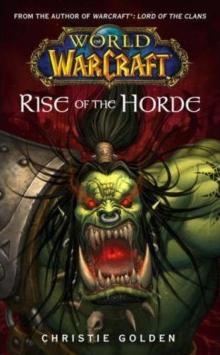 Rise of the Horde
Rise of the Horde World of Warcraft: War Crimes
World of Warcraft: War Crimes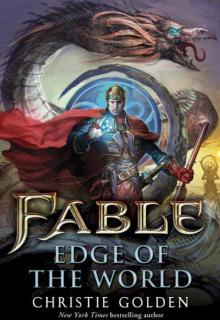 Fable: Edge of the World
Fable: Edge of the World Homecoming
Homecoming StarCraft II: Devil's Due
StarCraft II: Devil's Due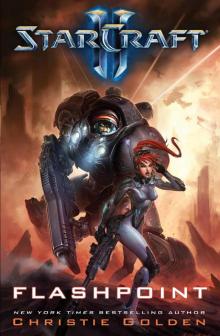 Starcraft II: Flashpoint
Starcraft II: Flashpoint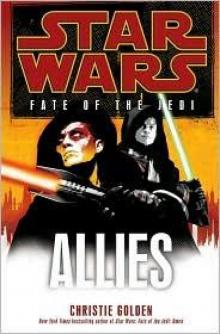 Allies
Allies Shadow Hunters
Shadow Hunters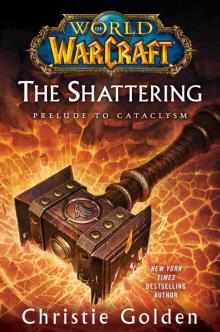 The Shattering: Prelude to Cataclysm wowct-1
The Shattering: Prelude to Cataclysm wowct-1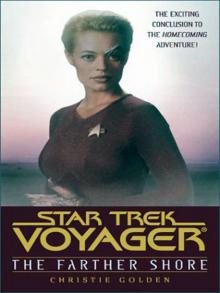 STAR TREK: VOY - Homecoming, Book Two - The Farther Shore
STAR TREK: VOY - Homecoming, Book Two - The Farther Shore King's Man and Thief
King's Man and Thief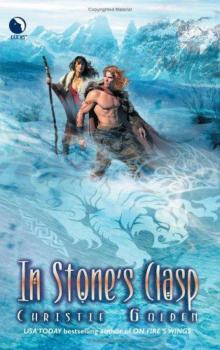 In Stone's Clasp
In Stone's Clasp Jaina Proudmoore: Tides of War
Jaina Proudmoore: Tides of War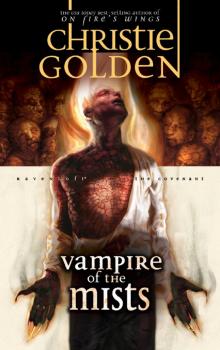 Vampire of the Mists
Vampire of the Mists Star Wars: Fate of the Jedi II: Omen
Star Wars: Fate of the Jedi II: Omen King's man and thief cov-2
King's man and thief cov-2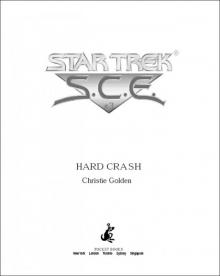 Star Trek
Star Trek StarCraft: Dark Templar: Twilight
StarCraft: Dark Templar: Twilight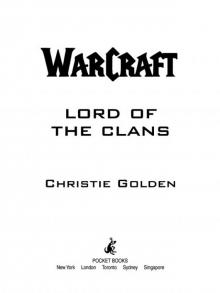 Lord Of The Clans
Lord Of The Clans ARKTIKA.1 (Short Story)
ARKTIKA.1 (Short Story) Before the Storm
Before the Storm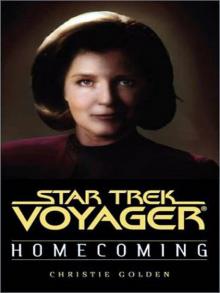 STAR TREK: VOY - Homecoming, Book One
STAR TREK: VOY - Homecoming, Book One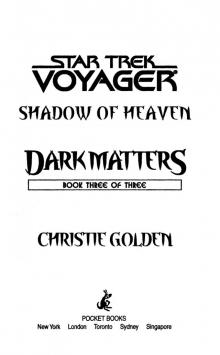 Shadow of Heaven
Shadow of Heaven Before the Storm (World of Warcraft)
Before the Storm (World of Warcraft)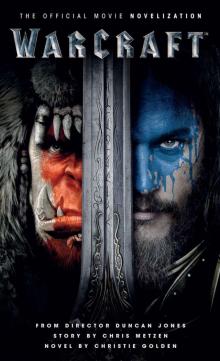 Warcraft Official Movie Novelization
Warcraft Official Movie Novelization Flashpoint
Flashpoint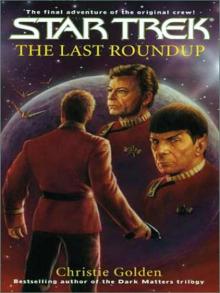 STAR TREK: The Original Series - The Last Roundup
STAR TREK: The Original Series - The Last Roundup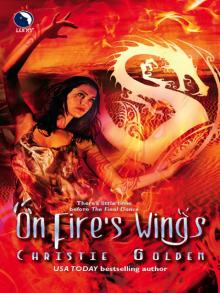 On Fire’s Wings
On Fire’s Wings Spirit Walk, Book One
Spirit Walk, Book One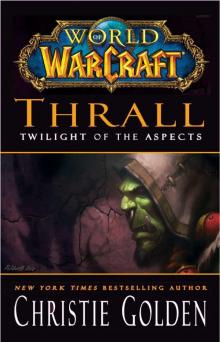 Thrall Twilight of the Aspects
Thrall Twilight of the Aspects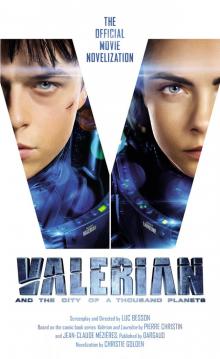 Valerian and the City of a Thousand Planets
Valerian and the City of a Thousand Planets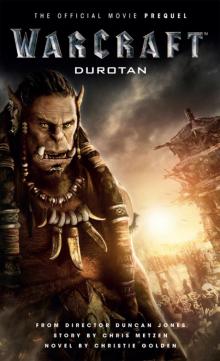 Warcraft
Warcraft Assassin's Creed: Heresy
Assassin's Creed: Heresy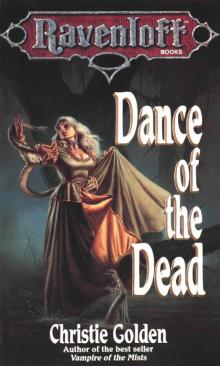 Dance of the Dead
Dance of the Dead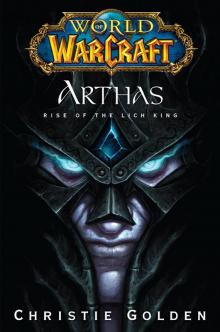 Arthas: Rise of the Lich King wow-6
Arthas: Rise of the Lich King wow-6 Assassin's Creed: The Official Movie Novelization
Assassin's Creed: The Official Movie Novelization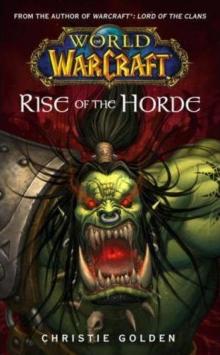 Rise of the Horde wow-2
Rise of the Horde wow-2 Dark Disciple
Dark Disciple Ghost Dance
Ghost Dance The Shattering
The Shattering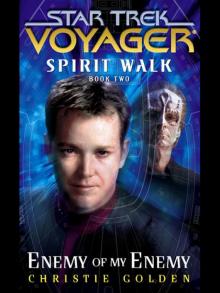 Spirit Walk, Book Two
Spirit Walk, Book Two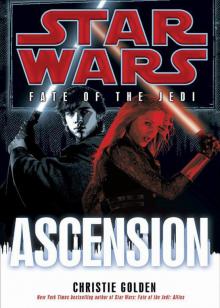 Star Wars: Fate of the Jedi: Ascension
Star Wars: Fate of the Jedi: Ascension Star Wars: Fate of the Jedi V: Allies
Star Wars: Fate of the Jedi V: Allies The Enemy Within
The Enemy Within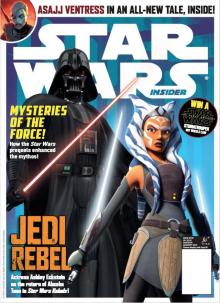 Kindred Spirits
Kindred Spirits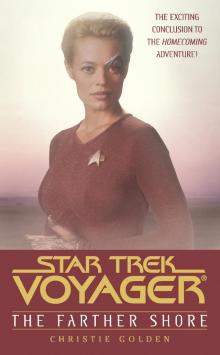 The Farther Shore
The Farther Shore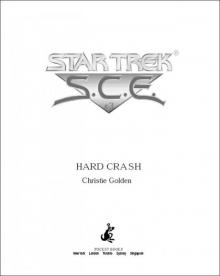 Star Trek: Hard Crash (Star Trek: Starfleet Corps of Engineers Book 3)
Star Trek: Hard Crash (Star Trek: Starfleet Corps of Engineers Book 3) Twilight
Twilight